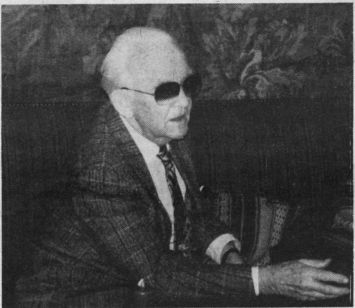social bookmarking tools:
 |
|
| Available RSS Feeds |
|---|
 - Top Picks - Top Picks |
 - Today's Music - Today's Music |
 - Editor's Blog - Editor's Blog
|
 - Articles - Articles
|
Add Louisville Music News' RSS Feed to Your Yahoo!
|

Second Thoughts
Two Gentlemen of "The City of My Dreams" Vienna: Wolfgang Mozart and Antonio Salieri
By Henry C. Mayer
A rare event which should make local music history for Thomson Smillie and the community is the musical double header: "The Impresario" by the incomparable Wolfgang Amadeus Mozart and "Words and Music" by his contemporary and rival, Antonio Salieri. It may be the first time in U.S. musical history that these two works have been played together in one day.
For many of us, most of what we know about these two men may come from Peter Schaffer's play and later movie, "Amadeus." The title may have a double meaning: it is Mozart's second name and it could be construed as a comment on Divine Providence since one translation could say God loves. I say that because there is a certain poignancy in the second meaning which Salieri's comments in Act I of the play allude to. He is puzzled and seems to question God for giving Mozart, whom the play depicts, not entirely accurately, as a highly talented brash upstart舒 some might say "smart ass." Salieri goes on to say that he who has been devout has been short-changed.

Louisville Music News has done some preliminary research about the possible historical relationship between these two composers. Among our actions, we visited one of Mozart's foremost admirers and long-time director of Kentucky Opera, Moritz Bomhard. Here is what he said:
"Really we know very little about their relationship; little if anything was written about it by their contemporaries and it seems that neither man did either. There is, however, a marked difference in how the two men expressed their musical gifts. Salieri primarily wrote operas and relied on the style then in vogue influenced by the Italian manner of composition and to some extent by his mentor, Christoph Gluck. His first work was performed when he was 19 and Gluck noted that it was well received."
And also according to Maestro Bomhard, "Mozart composed brilliantly in almost every musical genre, but especially in piano concerti and opera. He broke new ground, can be ranked with Bach among the foremost composers and he rivaled Shakespeare in his incredible knowledge of human nature, including women."
Contrary to an impression one might get from Schaffer's play, the two men were only six years different in age, Salieri being the older. Becoming an orphan at 15, Salieri was taken to Vienna to study and soon gained valuable access to musicians and patrons. Mozart, talented as he was, was plagued by poverty all his life.
When we meet him in the play, Salieri held most of the keys to patronage in Vienna. He could well have seen in Mozart's unique talent a threat to his supremacy and even livelihood, particularly since Emperor Josef II was interested in having German opera and Salieri wrote only in Italian. Salieri could write well to please existing tastes; as it turned out, Mozart could write for all time.
The play suggests that Mozart's wife, Constance, offered Salieri her body in exchange for his favorable influence at court. An extensive document, The Mozart Sourcebook, written by a number of Mozart scholars, says nothing of this and is inclined to say little about the two men's relationship. One author does write that Mozart felt that Salieri intrigued against him while another comment by Mozart in the last year of his life is a suspicion that Salieri poisoned him. The latter is now thoroughly discredited but there could well be some truth about the former view.
One needs to recall that Schaffer was writing for the stage and, as Shakespeare's historical plays can tell us, what makes for effective theater need not include historical accuracy. There is no biography of Salieri in the U of L School of Music library. I would have to suggest that there is no clear historical evidence for Schaffer's main points and, of course, neither is there any contemporary writing about the personalities of these two men. There was obviously a rivalry and it affected how the two men felt about each other; other than that, we know nothing, including the question whether Salieri ever met Constance.
Finally, one should remember that at this time (the 1780s) Vienna was becoming the center of the music world. Its rivals were Paris and London and, after this time, its dominance was to last until the beginning of World War I. Salieri may have only been human in fearing Mozart's competition but, as his two patrons Gluck and the Emperor died before Mozart, he becomes of increasingly less importance. And other composers, including Haydn and Beethoven, were to dominate Vienna's musical life. Five of Mozart's operas appear not only to have stood the test of time but may last to the "final all-ending day." By contrast, in some years of going to and reading about opera, this is the first time I recall that anyone was producing one of Salieri's works.
